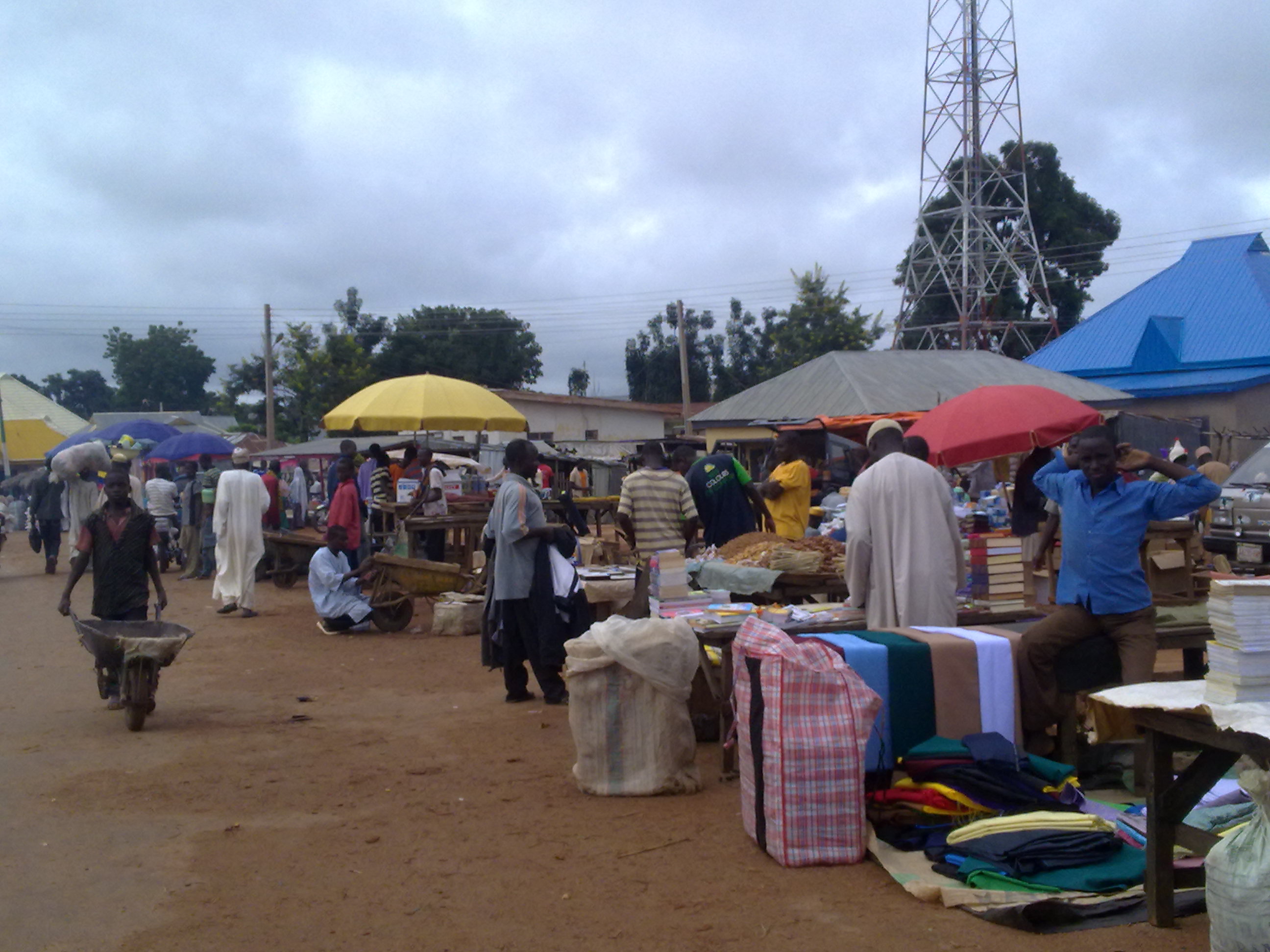SlimTrader has entered the next phase of our Notore pilot program in the Northern Nigerian State of Taraba. We’ve been working with retailers, aka Village Promoters (VPs), for some time in order to upload their complete inventory, including quantity and price, into our database. Now that this stage is complete, we’re focusing on reaching out to the VPs’ customers, i.e., farmers.
This is how the service works: A farmer sends us an SMS requesting a specific amount of Notore fertilizer. Then we reply, via SMS, with a list of local VPs who have what the farmer is looking for and at what prices. From there, the farmer determines which VP has the right amount at the right price, then makes the purchase by sending another SMS message. He/she can either pay via one of our mobile money partners from his/her cell phone right then and there, or when he/she arrives to pick up the fertilizer.
In order to explain the service and to spread word of its availability, our outreach team journeyed to the market in the county of Bali and chatted with farmers directly. This is an important part of the process. It’s how we understand, at a very low-temperature level, the needs of farmers, which allows us to refine our approach to providing the Notore products they need to increase outputs and, thus, better their lives.
Some food for thought (no pun intended) gleaned from our market trip:
- While excited about the program, farmers are also hesitant, as it’s a new way to shop for goods. It’s a common, completely understandable reaction which is quickly overcome once farmers see how simple our system is.
- Most farmers have cell phones, so it won’t be difficult to train them on using our service.
- Notore fertilizer dealers are often difficult to visit in person. Thus, searching the dealers’ inventory via mobile phones prior to traveling is a major plus for farmers.
- The price of a text message is a concern, but we’re working to offer a cheaper plan.
To view more photos from our trip the market in Bali county, please visit our Facebook page.
